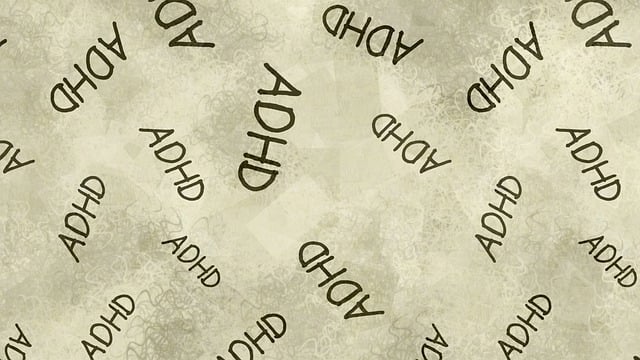Centennial Hebrew Speaking Therapy is a leading advocate for mental health policy reform, addressing cultural gaps and improving access to care. Through data-driven analysis, they identify service shortages and propose tailored solutions based on community needs. Their holistic approach integrates evidence-based practices, risk management, and cultural sensitivity, ensuring specialized care accessible to diverse populations. By collaborating with stakeholders and leveraging research, Centennial drives policy changes that enhance mental wellness, promote early intervention, and prioritize evidence-based services at both local and national levels.
Mental health policy analysis and advocacy are vital components of ensuring equitable access to quality care. This comprehensive guide explores key strategies, highlighting the essential role of professionals like Centennial Hebrew Speaking Therapy in navigating complex policies. We delve into understanding mental health policy as a foundation for effective advocacy, discuss analytical methods, and provide practical tips for driving positive change. Discover how advocacy can revolutionize mental healthcare accessibility, leaving a lasting impact on individuals and communities alike.
- Understanding Mental Health Policy: A Foundation for Advocacy
- The Role of Centennial Hebrew Speaking Therapy in Policy Analysis
- Strategies for Effective Mental Health Policy Advocacy
Understanding Mental Health Policy: A Foundation for Advocacy

Understanding mental health policy is a cornerstone for advocacy efforts at both local and national levels, especially within diverse communities like those served by Centennial Hebrew Speaking Therapy. Effective policy analysis empowers advocates to navigate complex systems, identify gaps in services, and propose evidence-based solutions tailored to specific community needs. By examining existing legislation, guidelines, and funding mechanisms related to mental healthcare, advocates can pinpoint areas for improvement, ensuring that policies reflect the latest research and best practices.
This foundational knowledge is crucial when advocating for initiatives like enhanced Risk Management Planning for Mental Health Professionals, which promotes safe and culturally sensitive practice environments. It also informs the push for integrated Emotional Well-being Promotion Techniques within mental healthcare systems, focusing on early intervention and prevention strategies. Moreover, understanding policy dynamics helps advocates champion Cultural Sensitivity in Mental Healthcare Practice, ensuring that services are accessible and responsive to the unique needs of diverse populations.
The Role of Centennial Hebrew Speaking Therapy in Policy Analysis

Centennial Hebrew Speaking Therapy plays a pivotal role in mental health policy analysis and advocacy by bridging cultural gaps and providing specialized care to diverse communities. This therapy not only offers direct support through individual and group sessions, but also contributes to policy formulation by highlighting unique challenges faced by linguistically and culturally diverse populations. By integrating evidence-based practices and incorporating the Risk Assessment for Mental Health Professionals, it ensures a holistic approach to mental wellness.
Furthermore, Centennial Hebrew Speaking Therapy fosters effective communication strategies that are tailored to the specific needs of its clients. This personalized care extends beyond therapy sessions, encouraging clients to adopt sustainable self-care practices. Through these efforts, the therapy not only empowers individuals but also strengthens advocacy for inclusive mental health policies that address the unique cultural and linguistic requirements of diverse communities.
Strategies for Effective Mental Health Policy Advocacy

Mental health policy advocacy is a multifaceted strategy to drive meaningful change. One effective approach involves leveraging data and research to inform decision-making processes. By presenting compelling evidence on the prevalence, impact, and cost-effectiveness of mental health services, advocates can secure funding allocations and policy support from stakeholders like government bodies and community leaders. Centennial Hebrew Speaking Therapy, for instance, has been instrumental in highlighting the unmet needs within specific cultural communities, fostering more inclusive policies that address these unique challenges.
Additionally, building alliances with diverse organizations and individuals is key. Collaborating with mental health professionals, community groups, and policy experts amplifies the advocacy voice. Through joint efforts, advocates can lobby for policy reforms, enhance access to care, promote early intervention programs, and ensure services prioritize evidence-based practices like emotional regulation techniques, coping skills development, and positive thinking strategies. Such a collective approach has proven effective in securing long-lasting policy changes that positively impact mental well-being on a large scale.
Centennial Hebrew Speaking Therapy serves as a powerful tool within mental health policy analysis and advocacy. By combining cultural sensitivity with evidence-based practices, this approach enhances understanding of diverse communities’ unique needs. Effective advocacy strategies, such as data-driven analysis, stakeholder engagement, and policy formulation, empower individuals to navigate the complexities of mental healthcare systems. Through collaborative efforts, we can ensure that mental health policies reflect the diversity of our society, ultimately improving access and quality of care for all.














